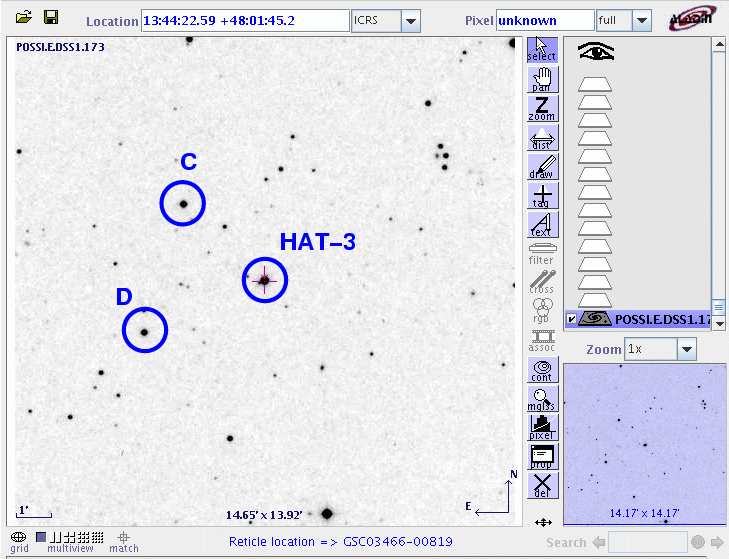
On the night of UT Feb 06, 2008, the SDSS Photometric Telescope ("PT" for short) took a series of exposures of HAT-3. We saw a full transit under good conditions, our first measurements of this system.
Notes from the night
This is a chart of the field. HAT-3 is the bright star indicated by the crosshairs. The labelled stars will appear in later analysis.

The host star of HAT-3 has a magnitude V=11.59 according to HAT-P-3b: A Heavy-Element-rich Planet Transiting a K Dwarf Star.
Following the procedures outlined by Kent Honeycutt's article on inhomogeneous ensemble photometry, I used all stars available in each image to define a reference frame, and measured each star against this frame. You can find the software package used to do the ensemble photometry online; it's free!
The night was reasonably clear during the entire run on HAT-3. The graph below shows the amount by which instrumental magnitudes from each image needed to be shifted to match the ensemble reference. On a clear night, this graph would show a straight horizontal line.
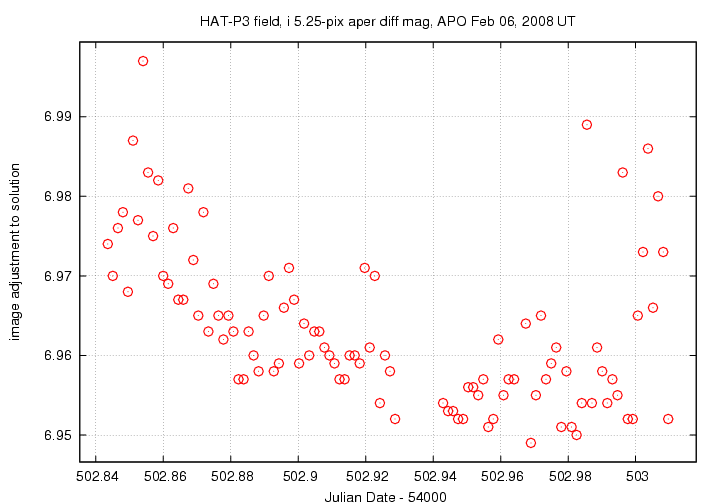
Below is a graph of the scatter in differential magnitude versus magnitude in the ensemble solution.
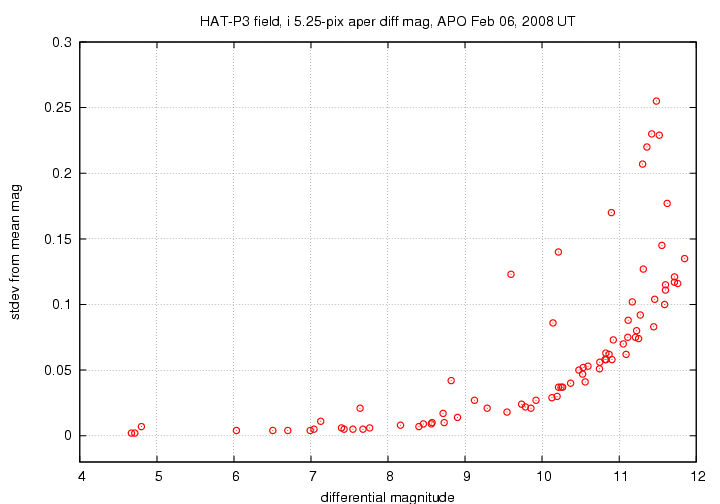
HAT-3 is the star near differential mag 4.9; it shows a small excess of scatter over neighboring stars of the same brightness. The "noise floor" in these measurements is about 0.003 mag -- pretty good for the PT.
Below are the light curves for the target (green symbols) and some comparison stars in the field. I don't know why there is a brief gap in the middle.
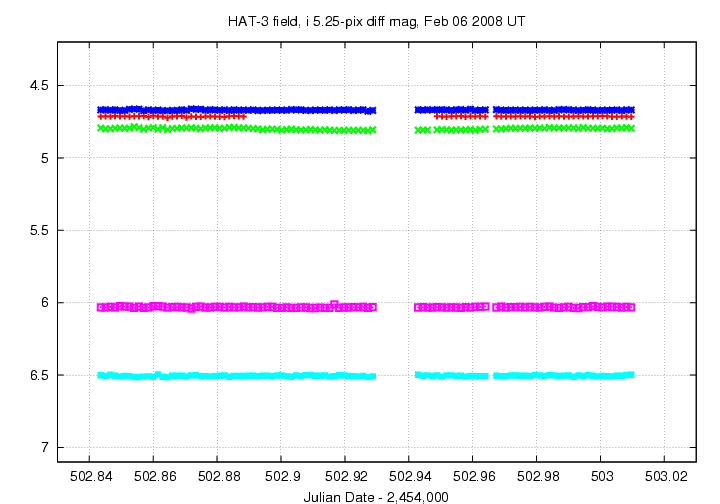
In this closeup, I have shifted the data for two comparison stars to move them closer in magnitude to the target.
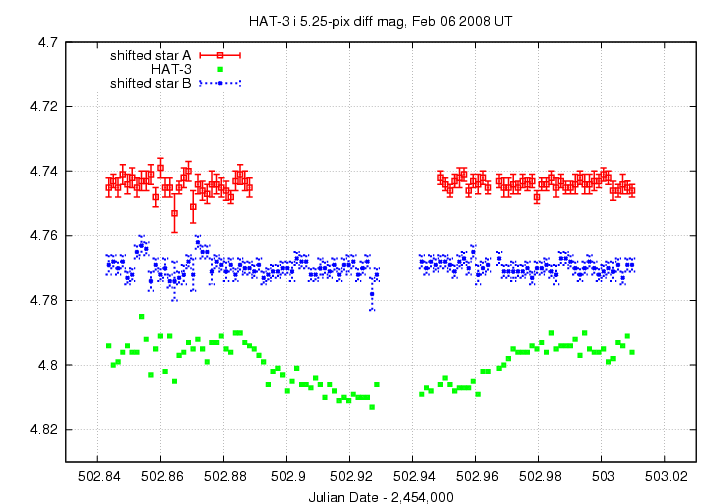
I can make out the ingress at about 502.885, and the egress at about 502.98.
An ephemeris grabbed from transitsearch.org predicts for this night
----------------------------------------------------------------------------------------
Begin Transit Window PREDICTED CENTRAL TRANSIT End Transit Window
All Times UT
HJD Year M D H M
2454502.88 2008 2 6 9 6 2454502.93 2008 2 6 10 19 2454502.98 2008 2 6 11 33
----------------------------------------------------------------------------------------
The ephemeris ingress of UT 2008 Feb 06 09:06:00 corresponds to JD 2,454,502.879, which is a bit earlier than I estimated. The ephemeris egress of UT 2008 Feb 06 11:33:00 corresponds to JD 2,454,502.981, just about when my eyeball detects the egress.
You can grab the measurements for your own analysis. Below is a table with three flavors of time, plus the differential magnitude of the target and an estimate of the uncertainty in each measurement. I show the first few lines of the file to give you an idea of its format.
# Measurements of HAT-3 made with APO PT, Feb 6, 2008 UT. # Each exposure 45 seconds long in SDSS i-band; # Tabulated times are midexposure (FITS header time - half exposure length) # and accurate only to +/- 1 second (??). # 'mag' is a differential magnitude based on ensemble photometry # using a circular aperture of radius 5.25 arcseconds. # # UT day JD-2,450,000 HJD-2,450,000 mag uncert Feb06.84360 4502.84360 4502.84619 4.794 0.003 Feb06.84508 4502.84508 4502.84767 4.800 0.002 Feb06.84658 4502.84658 4502.84917 4.799 0.002
Last modified 02/24/2008 by MWR.